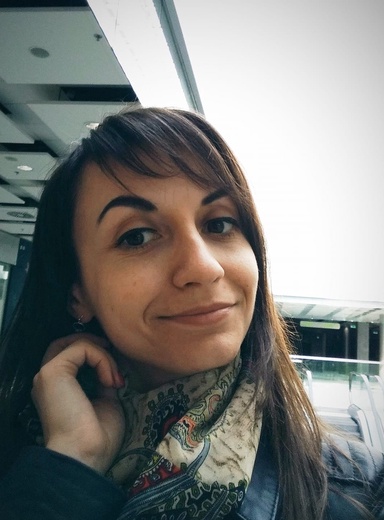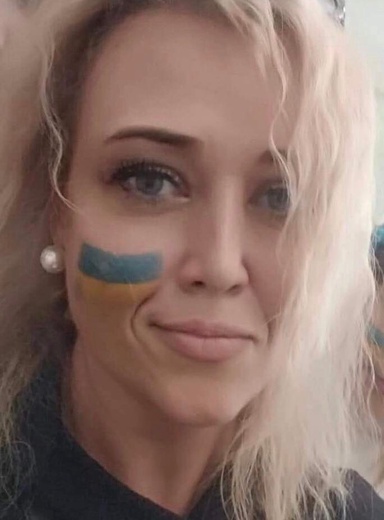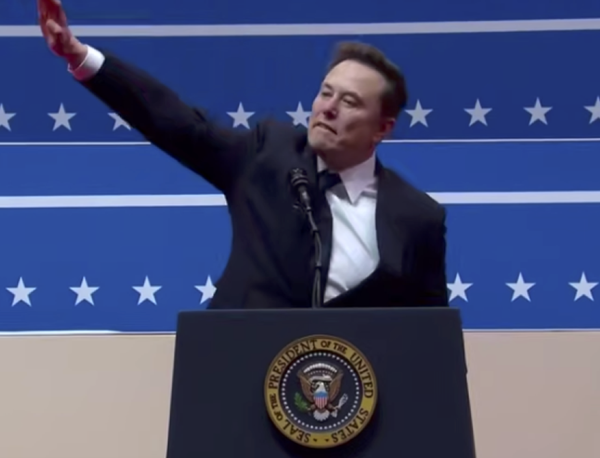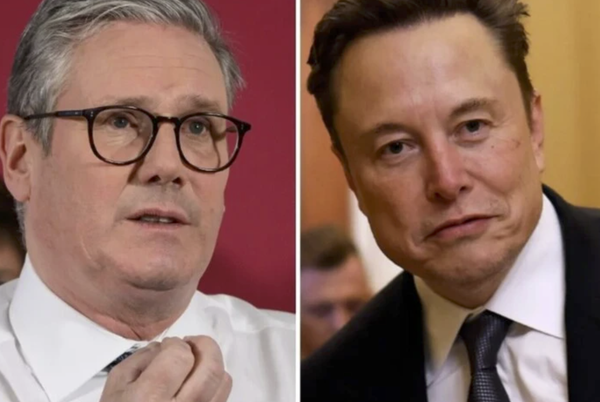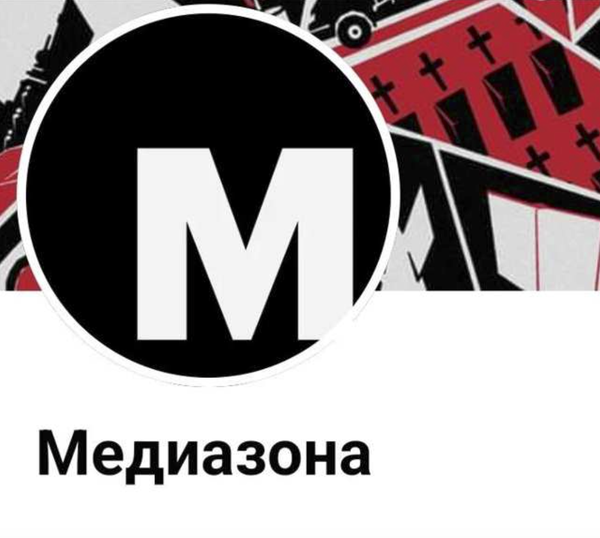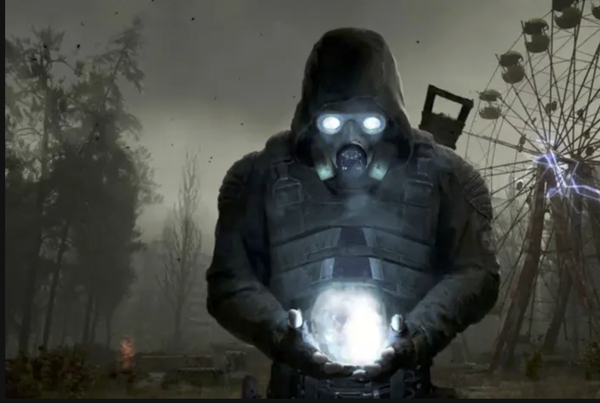1000 days of the full-scale war: how the Russian ‘opposition’ justifies its own and seeks to save face in eyes of the West
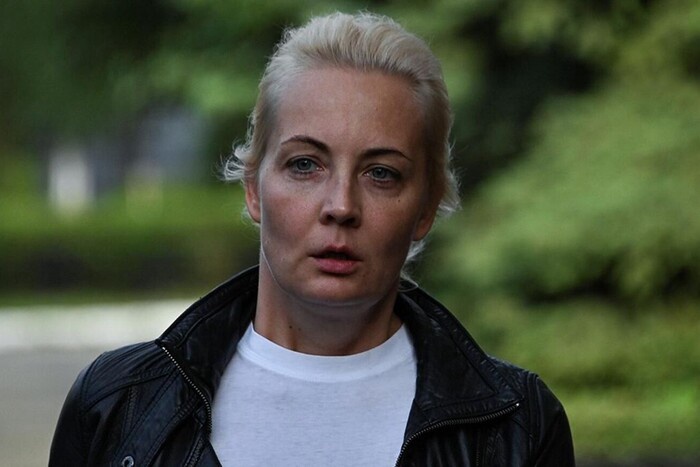
November 19 marks 1,000 days since the beginning of russia’s full-scale war against Ukraine. To commemorate this milestone, the European Parliament held a special extraordinary session on November 19 to “honour 1,000 days of bravery and courage of the Ukrainian people.” The President of Ukraine, Volodymyr Zelenskyy, addressed MEPs via video link. Ukrainians abroad organized events to commemorate the ongoing war and express gratitude to their supporters.
Against this backdrop, the russian “opposition” chose to make its presence known. They announced a “great march for peace” on November 17. The abundance of quotation marks in describing these events reflects the nature of the russian “soul” — there is no other way to write about it.
The march was organized by Yuliya Navalnaya, Vladimir Kara-Murza, and Ilya Yashin, who describe themselves as representatives of “a peaceful, civilized, and democratic russia.” The credibility of the existence of such a country is questionable, particularly given that the rally took place in Berlin rather than russia.
This is not the first instance of so-called “good russians” attempting to redirect attention from Ukrainian causes.
For example, from January 19 to January 21, 2024, families of prisoners of war held demonstrations across 12 Ukrainian cities as part of the initiative “Don’t be silent! Captivity Kills! Let’s Unite for the Sake of Heroes’ Lives.” However, Western media coverage primarily focused on the “russia without Putin” rally supporting the imprisoned, but still living, Alexei Navalny.
Despite low turnout, these events achieved their intended media impact. Photos show approximately 50 participants in Prague and no more than 20 in Tbilisi (despite Sakartvelo (Georgia) being a major destination for russians fleeing their country). Western media portrayed these events as large-scale movements, capitalizing on multiple photos. In reality, mass support was absent.
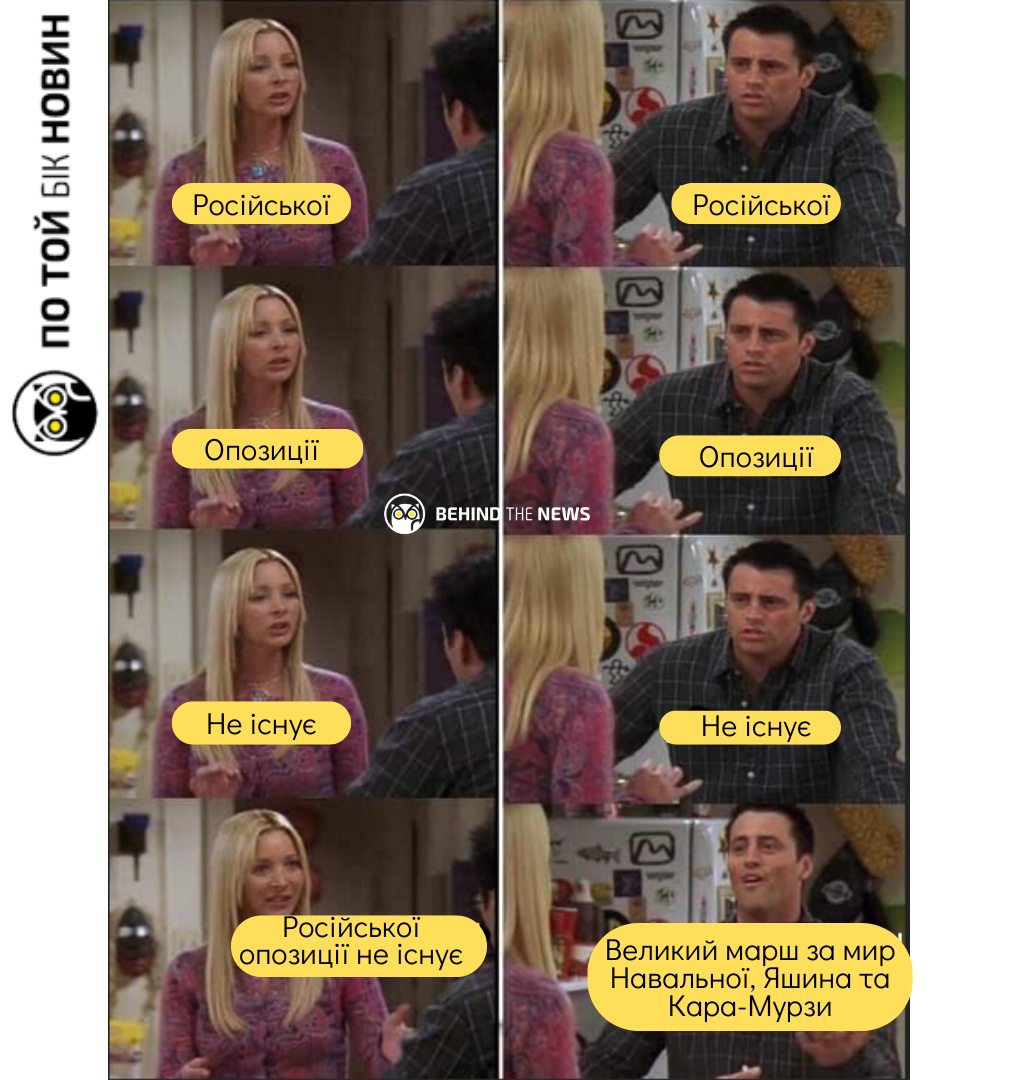
So, why is the russian opposition attempting to draw attention to itself?
It seems that it’s trying to convince Western partners of their importance and the necessity of support for namely their cause. They want to make us believe that opposition parties in russia do actually exist and there is a strong potential for democratic change in russia once Putin departs. However, they show no intention of actively removing him, instead anticipating his departure through natural causes. So, obviously, this story will be heard.
In fact, Ukraine’s ambassador to Germany, Oleksiy Makeiev, duly criticized the “march” in Berlin. He argues that the demonstration is “evidence of the struggle for German attention and funding.” Makeiev contends that the “russian oppositionists” are hiding behind the convenient term “Putin’s war” while avoiding discussion of collective responsibility, emphasizing that this is fundamentally russia’s war against Ukraine.
In an article for Zeit, the diplomat wrote the following:
“There is substantial evidence suggesting that the march organized by Yuliya Navalnaya, Ilya Yashin, and Vladimir Kara-Murza was more of a November stroll without dignity or consequences. It was a PR campaign targeting German media and politicians rather than the russian population.”
The Berlin-based non-governmental organization Vitsche also criticized the action.
“…Do not place the blame solely on Putin. The organizers focus on portraying Vladimir Putin as the only one responsible for russia’s aggressive war. Such an approach ignores the deep-rooted problems in russian society and misses the point of a democratic, oppositional approach. True accountability means questioning not just one person, but the social structures and collective attitudes that made this war possible,” the activists emphasized.
To contextualize the potential impact of such russian actions, one can recall the senseless “At Noon Against Putin” protest organized by Navalny’s widow. During russia’s pseudo-elections, “opponents of the regime” were instructed to visit polling stations, stand briefly, and leave. It was also possible to vote against or spoil the ballot.
While many participated, the action ultimately did not cause significant changes. Instead, it inadvertently helped Putin demonstrate a “good turnout” and claim 87% support. The protest proceeded without any meaningful resistance, yet foreign leaders praised the russians for their participation, despite the lack of genuine opposition (check out the article on this here).
Downplaying russian responsibility for tacit consent
The other side of the coin is the promotion of imperial narratives, which, unlike the “peace marches,” do have an impact. For example, the message about “Putin’s war,” which is allegedly supported by only a minority of russians, serves to dissociate russian society from responsibility for the aggression and whitewash them in the eyes of the civilized world. In reality, russian troops are committing war crimes on a massive scale, and sociology shows significant support for the war among russians. The narratives of “two russias” — the good one and the Putin regime — downplay the responsibility of russians for their tacit consent to the creation of this regime and try to reduce the punishment for crimes.
Genuine opposition implies a willingness to take risks that “good russians” avoid. Most admit that they do not expect changes in the country, choosing passive methods of “struggle.” They argue that protesting in russia is dangerous because there is a threat of 15 years in prison, saying that “thousands are already in jail for this” (this is a quote from Yashin from social network X). But statistics show otherwise.
At the beginning of this year, the russian human rights project OVD-Info released a report on “two years of repression.” It states that since the beginning of the full-scale invasion, there have been 19,855 detentions for anti-war stances, 900 court cases, and only 267 people have been imprisoned. The average sentence is four and a half years. The largest number of people were detained in the first months after the start of the full-scale invasion and after the mobilization was announced. The infographic shows that in the last months of 2023, only 2–3 people were detained for their anti-war stance.
At the same time, when there were power outages in russia in the summer, russians still came out to protest — they rallied, shouted “Give us light!” and even blocked the road.
Additionally, doubts about the sincerity of the “opposition” are raised by some of its representatives. For example, OVD-Info comprises human rights activists whose employee Yekaterina Morozova mocked the PACE decision to recognize the deportation of Ukrainian children to russia as genocide on the social network X. She wrote that this decision devalues the legal term “genocide” and downplays the tragedy of other victims of genocides, such as Jews or Armenians. In the post, she also compared the recognition to the “genocide of mosquitoes in the summer” and the “genocide of toilet paper during the Covid epidemic.” Following the outrage on social media from Ukrainians, OVD-Info announced that it was breaking off cooperation with Morozova. At the same time, other “different-minded” russians wrote that it was not necessary to fire the lawyer.
Advocates for russia’s imperial claims
The rhetoric of the “good russians” reveals their attitude towards Ukraine. russian “oppositionists” call for spending money not on weapons to defend Ukraine, but on “information campaigns” in russia. Recall how Navalny suggested that world leaders fight Putin by “using the advertising capabilities of social networks.” He argued that the cost of firing a Javelin missile just once ($230,000 US) could purchase 200 million ad impressions, which would allegedly convey the truth about the war to russian Internet users, because “there is no 75 percent support for the war with Ukraine in russia”.
When invited to the European Parliament, Yuliya Navalnaya mentioned the war in Ukraine during her speech. However, she did not condemn russian aggression. Instead, she claimed that for two years, weapons, money, and sanctions had been provided without effect. As a solution, she again proposed allocating money to investigate the financial fraud of Putin and his entourage. In a late October interview with Die Zeit, when asked about arms supplies to Ukraine, she stated that such supplies also harm russians.
Following this, German politician Roderich Kiesewetter commented for BILD that Navalnaya does not support Ukraine’s legitimate right to self-defense. He characterized her as “a partner who is not trustworthy for responsible policy within the framework of international law” and instead “an advocate for russia’s imperial claims”.
Perhaps Navalnaya’s unsuccessful interview prompted the organization of the “march for peace” in Berlin. Such actions create the illusion of resistance, although in reality, they are merely an attempt to save face in the eyes of the West ![]()
Prepared by Aliona Malichenko.

